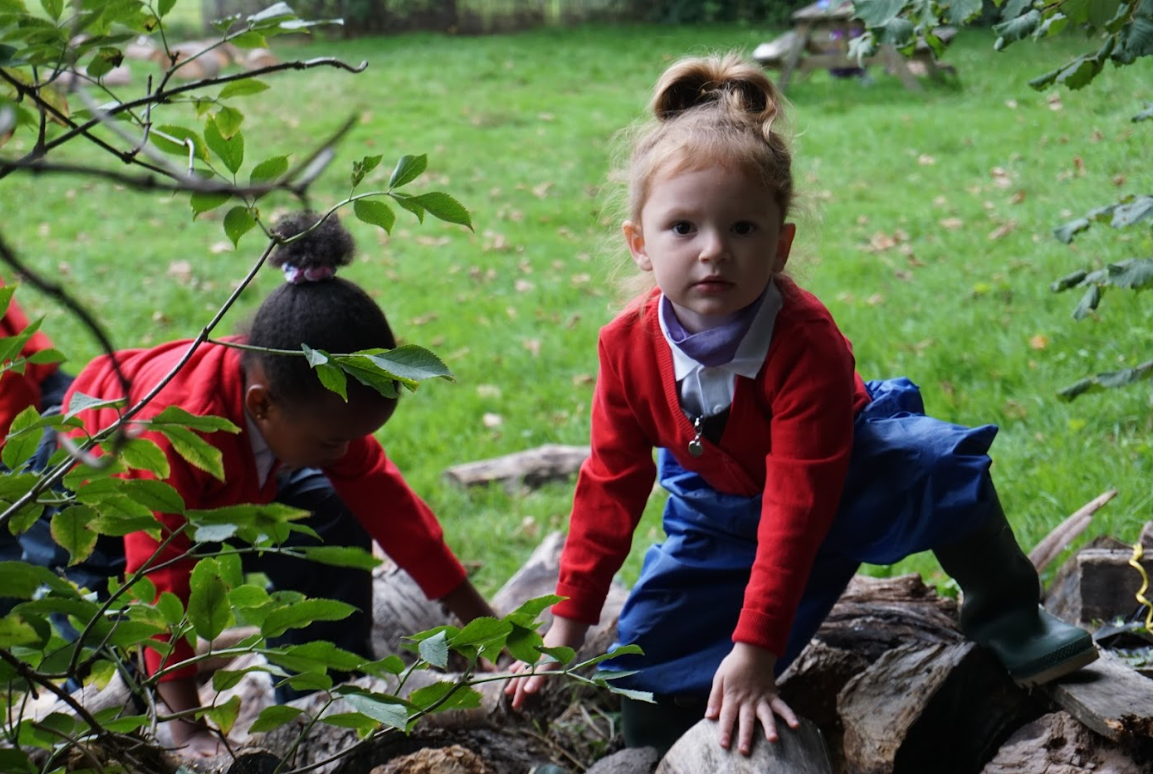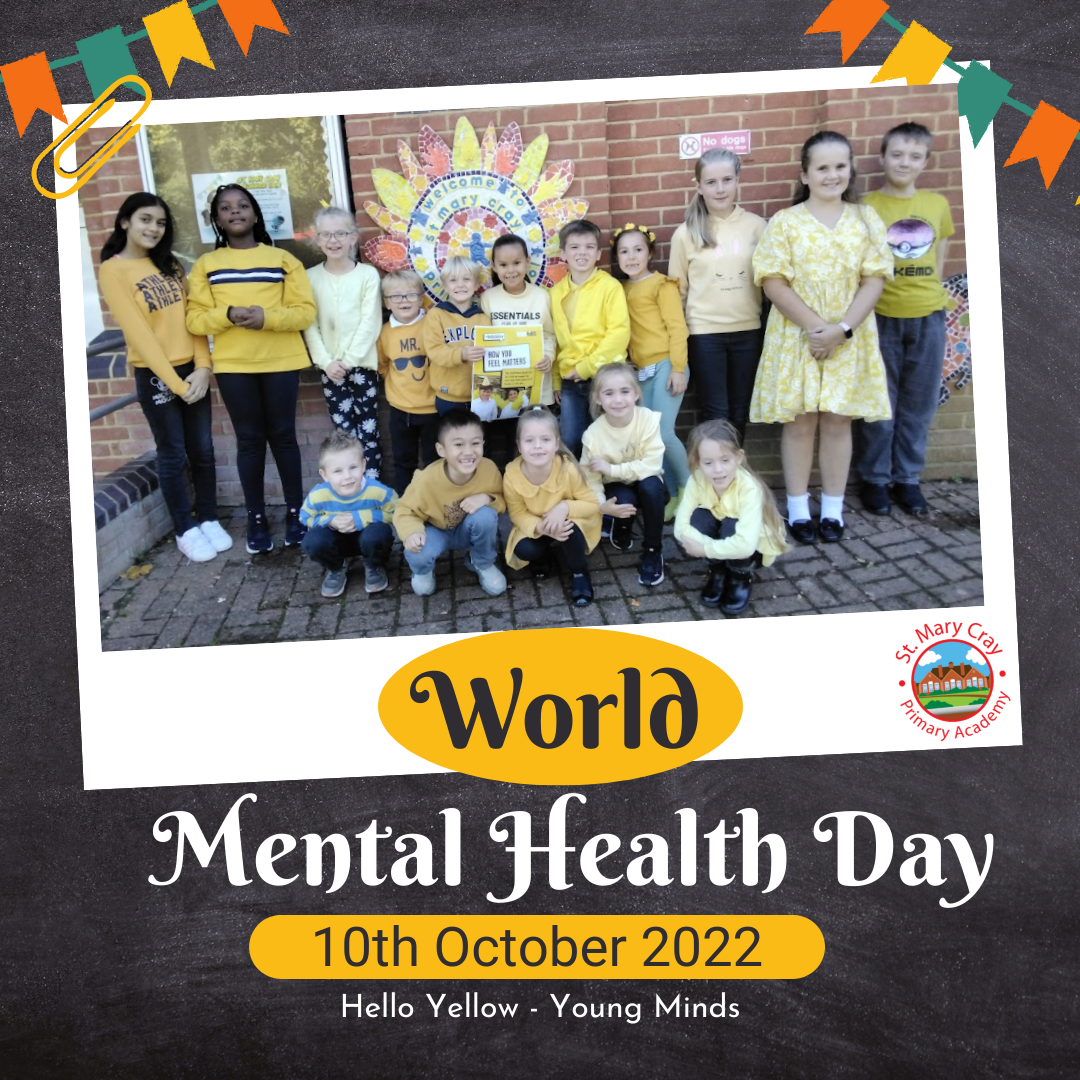Anxiety
The following information has been sourced from Young Minds. You can visit their website for more information and support, or contact the school directly.
What is anxiety?
Anxiety is a feeling of worry or fear that is experienced as a combination of physical sensations, thoughts and feelings.
All children and young people feel worried sometimes, and this is a normal part of growing up. At certain points, such as on their first day of school or before an exam, young people may become more worried, but will soon be able to calm down and feel better.
Anxiety can become a problem when a young person feels stuck in it, or when it feels like an overwhelming, distressing or unmanageable experience. If this kind of worrying goes on for a long time, it can leave a young person feeling exhausted and isolated, and limit the things they feel able to do.
If your child is struggling with anxiety, there are things you can do to help them – including providing emotional support, working on practical strategies together and finding the right professional help if they need it.
What makes young people anxious?
A young person may feel anxious for a number of different reasons, depending on the individual. If your child is feeling unmanageable amounts of worry and fear, this is often a sign that something in their life isn’t right and they need support to work out what the problem is.
The following kinds of things can make some children and young people feel more anxious:
- experiencing lots of change in a short space of time, such as moving house or school
- having responsibilities that are beyond their age and development, for example caring for other people in their family
- being around someone who is very anxious, such as a parent
- struggling at school, including feeling overwhelmed by work, exams or peer groups
- experiencing family stress around things like housing, money and debt
- going through distressing or traumatic experiences in which they do not feel safe, such as being bullied or witnessing or experiencing abuse
This video by Braive is a useful way of understanding how stress and anxiety can build up in a person's life.
Symptoms of anxiety
Anxiety tends to affect a young person’s body, thoughts and feelings. They may also behave differently, including turning to certain coping behaviours to try to avoid or manage their anxiety.
Physical symptoms:
- panic attacks, which can include having a racing heart, breathing very quickly, sweating or shaking
- shallow or quick breathing, or feeling unable to breathe
- feeling sick
- dry mouth
- sweating more than usual
- tense muscles
- wobbly legs
- Irritable Bowel Syndrome (IBS), diarrhoea or needing to pee more than usual
- getting very hot
Thoughts and feelings:
- preoccupied by upsetting, scary or negative thoughts
- nervous, on edge, panicky or frightened
- overwhelmed or out of control
- full of dread or an impending sense of doom
- alert to noises, smells or sights
- worrying about being unable to cope with daily things like school, friendships and being in groups or social situations
- worrying so much that it is difficult to concentrate and/or sleep
Coping behaviours:
- withdrawing or isolating themselves – including not wanting to go to school, be in social or group situations, be away from parents or try new things
- repeating certain behaviours, actions or rituals (often called ‘obsessive compulsive behaviours’)
- eating more or less than usual
- self-harming
How to help your child in an anxious moment
When your child is in the middle of a very anxious moment, they may feel frightened, agitated or worried about having a panic attack. The important thing to do in the moment is to help them calm down and feel safe.
These strategies can help:
- Breathe slowly and deeply together. You can count slowly to five as you breathe in, and then five as you breathe out. If this is too much, try starting with shorter counts. If it works for them, gradually encourage your child to breathe out for one or two counts longer than they breathe in, as this can help their body relax.
- Sit with them and offer calm physical reassurance. Feeling you nearby, or holding your hand or having a cuddle if it’s possible, can be soothing.
- Reassure them that the anxiety will pass and that they will be okay. It can be helpful to describe it as a wave that they can ride or surf until it peaks, breaks and gets smaller.
- Ask them to think of a safe and relaxing place or person in their mind. If you haven’t tried this before, agree with them when they’re feeling calm what this place or person is. It could be their bedroom, a grandparent’s house, a favourite place in nature or somewhere they’ve been on holiday. Sometimes holding a memento of a relaxing place, like a seashell or pebble, can help.
- Try using all five senses together. Connecting with what they can see, touch, hear, smell and taste can bring them closer to the present moment and reduce the intensity of their anxiety. You might think together about five things they can see, four things they can touch, three things they can hear, two things they can smell and one thing they can taste.
- Encourage them to do something that helps them to feel calmer. This could be running, walking, listening to music, painting, drawing or colouring-in, writing in a journal, watching a favourite film or reading a favourite book.
Remember that everyone is different, and that over time you and your child can work together to find the things that work best for them in these moments.
How to help your child manage their anxiety
Outside of moments when your child is feeling particularly anxious or panicky, there are things you can do over time to help them manage their anxiety and feel better.
A lot of these strategies are about helping your child to understand themselves and find out what works for them. The more confident they feel about helping themselves when things are hard, the more they will believe in their ability to cope – helping to reduce feelings of panic.
- In a calmer moment, talk with your child about their anxiety. Ask them what it feels like in their mind and body, and what things make them feel that way. It can be tempting to dismiss their worries because you want to reassure them, but it’s important to empathise with their experience and validate their feelings. You can find our tips on starting a conversation with your child here.
- Think together about whether there’s anything in particular that’s making them feel anxious. This could include a friendship, a relationship with a family member, their schoolwork or a combination of things. Are there changes that could be made at home or school that would make things easier? If your child is worrying about things that are outside of their control, it might help to name together who is responsible for managing the problem – for example, you might say, “worrying about money is the parents’ job”.
I felt that we lost the idea that it’s important to validate their feelings rather than dismiss them. But I think this is a really important point that we shouldn’t lose
Parent
- Help your child to recognise the signs that tell them they’re getting anxious, so they know when to ask for help or help themselves. Anxiety might make them feel sick or make their heart race. Getting to know these signs can make them less frightening and overwhelming when they happen.
- Think together about the activities that help them to express themselves and reduce their anxiety. Your child could try doing exercise, drawing or painting, writing in a journal, watching a favourite film, talking to friends or cooking and baking. These kinds of activities can help them to feel calmer.
- Try activities that help us to relax, such as mindfulness, yoga or meditation. Teenagers might like to use a mindfulness or meditation app such as Headspace or Calm. Remember that some people find these activities more helpful than others, so encourage your child to decide what works for them.
- Make a worry box or self-soothe box. It might help your child to write down their worries and put them in a worry box, giving them a physical place where their worries can be ‘held’. Or they might prefer a self-soothe box, which they can fill with things that help them when they feel anxious – like photos, fidget toys, scented oils and positive quotes. You can find out how to make a worry box here, or a self-soothe box here - or watch the video below.
- Help them do the things we know are important for our mental health: physical exercise, sleeping well, eating healthily, drinking water and spending quality time with loved ones. Regular exercise is particularly important for anxiety because it can help to reduce the symptoms in the body. It doesn’t have to be strenuous – walking or gentle yoga can help.
- Encourage them to cut out stimulants. Reducing or stopping drinking coffee, caffeinated drinks and alcohol can help because these can all trigger the physical symptoms of anxiety.
- Spend quality time together and talk about other things. Even if it’s just for a little while, you can help your child take their mind off their worries by having fun, relaxing and laughing. Activities like playing a sport, sewing or playing musical instruments are great for focusing the mind on the moment. You can find more activity ideas here.
- Seek professional help if you’re worried about your child’s mental health and things aren’t getting better. Some children and young people with anxiety will need professional and specialist help to feel better. They may benefit from a specific diagnosis or a treatment such as medication or talking therapy. You can find more information about this below.
I’ve found it helpful when talking about anxiety to think about achievable goals for overcoming worries that stop them from doing things, and then to create stages like a ladder to get to them
Young people tell us it helps to:
- find positive activities you enjoy
- think about something you’re looking forward to
- do physical exercise
- learn mindfulness and yoga
- imagine your thoughts leaving your brain and floating off into the sky
- keep yourself occupied
- have time out
- reflect on how you’re feeling
- talk to other people you trust
- remind yourself you’re not alone – odds are someone in your friendship circle has anxiety or depression too
Finding professional help
It’s a good idea to seek professional support if self-help strategies are not making the situation better and anxiety is affecting your child’s life, for example if they are feeling persistently anxious, often having distressing thoughts, or avoiding things like going outside or speaking to others.
GP and Child and Adolescent Mental Health Services (CAMHS)
Speaking to your GP is usually the first step to accessing mental health services. You can speak to your GP with or without your child. Together you can discuss whether referral to CAMHS, an assessment by a mental health specialist or referral for another kind of support is needed.
The type of support or treatment offered will depend on your child’s age and the kind of anxiety they are experiencing. Talking therapies such as Cognitive Behavioural Therapy (CBT) can help your child to understand the thoughts and feelings behind their anxiety and find practical strategies to help them cope.
Medication may be offered if your child’s anxiety is very difficult to manage or talking therapy has not helped. Medication should be suggested alongside talking therapies or another psychological treatment, and by a doctor who specialises in children’s mental health.
More Information On Medications Used To Treat Anxiety
Counselling and therapy
Counsellors and therapists can provide emotional support and help your child to make sense of, and find ways to cope with, their anxiety. Therapists working with younger children will usually work through play and arts activities such as painting, drawing and making things.
In addition to your GP, you may be able to access free or subsidised counselling and therapy at your child’s school if they provide a counselling service. You can also search online for free counselling services in your area, and the Youth Access directory can help you do this.
If it’s an affordable option for you, you can find a private counsellor, therapist or family therapist using the directories listed in our guide.
Guide To Counselling Services
Your child’s school
If your child is struggling, it can help to be open with the school about what’s going on and what support your child needs. Depending on their age, it may be important to make sure your child feels some control over the information that’s shared about them – for example by discussing with them who they would feel comfortable for you to speak to.
Alongside counselling, schools can often provide support from the pastoral team, a member of staff who your child can chat to when they need to, mentoring, peer buddying and clubs and activities.
Children Support Lines

Anxiety UK
Provides information, support and advice for anyone struggling with anxiety.
Live chat service available.
Phone: 03444 775 774
Text: 07537 416 905
Email: support@anxietyuk.org.uk
Opening times: 9.30am-5.30pm, Monday-Friday
No Panic
Supports people struggling with panic attacks, obsessive compulsive disorder (OCD), phobias and other anxiety-related issues related - and provides support and information for their carers.
Offers a specialist youth helpline for people aged 13-20. The opening hours are 3pm - 6pm, Monday - Friday; 6pm - 8pm, Thursdays and Saturdays.
Call 01952 680835 for a recorded breathing exercise to help you through a panic attack (available 24/7).
Information about call costs here.
Phone: 0844 967 4848
Phone: 0330 606 1174 (Youth helpline)
Email: sarah@nopanic.org.uk
Opening times: 10am - 10pm, 365 days a year
Offers support and information to anybody affected by obsessive compulsive disorder (OCD).
Website provides information and advice to help you access treatment.
Phone: 0845 390 6232
Email: support@ocdaction.org.uk
Email: youthhelpline@ocdaction.org.uk
Opening times: 9:30am - 8pm, Monday - Friday
Triumph Over Phobia (Top UK)
Runs a network of local self-help groups for anyone aged 16+ who has a phobia, OCD or an anxiety disorder.
Phone: 01225 571740
Email: info@topuk.org
The Mix
Offers support to anyone under 25 about anything that’s troubling them.
Email support available via their online contact form.
Free 1-2-1 webchat service available.
Free short-term counselling service available.
Phone: 0808 808 4994
Opening times: 4pm - 11pm, seven days a week
Childline
If you’re under 19 you can confidentially call, chat online or email about any problem big or small.
Sign up for a free Childline locker (real name or email address not needed) to use their free 1-2-1 counsellor chat and email support service.
Can provide a BSL interpreter if you are deaf or hearing-impaired.
Hosts online message boards where you can share your experiences, have fun and get support from other young people in similar situations.
Phone: 0800 1111
Opening times: 9am - midnight, 365 days a year
MeeTwo
A free app for teenagers (11+) providing resources and a fully-moderated community where you can share your problems, get support and help other people too.
Can be downloaded from Google Play or App Store.
YoungMinds Crisis Messenger
Provides free, 24/7 text support for young people across the UK experiencing a mental health crisis.
All texts are answered by trained volunteers, with support from experienced clinical supervisors.
Texts are free from EE, O2, Vodafone, 3, Virgin Mobile, BT Mobile, GiffGaff, Tesco Mobile and Telecom Plus.
Texts can be anonymous, but if the volunteer believes you are at immediate risk of harm, they may share your details with people who can provide support.
Text: YM to 85258
Opening times: 24/7
Support for Parents
- Parents Helpline
- Parents Survival Guide
- Your Guide To Support
-
Contact Us
Call the Parents Helpline: 0808 802 5544 (Monday to Friday 9.30am – 4pm, free for mobiles and landlines)
© 2021 YoungMinds. Registered charity numbers 1016968 & SC039700






